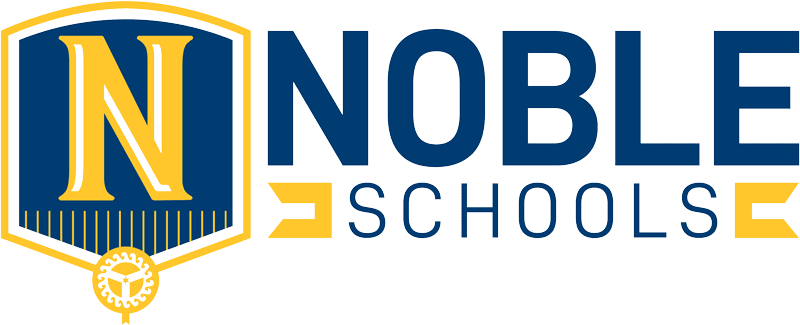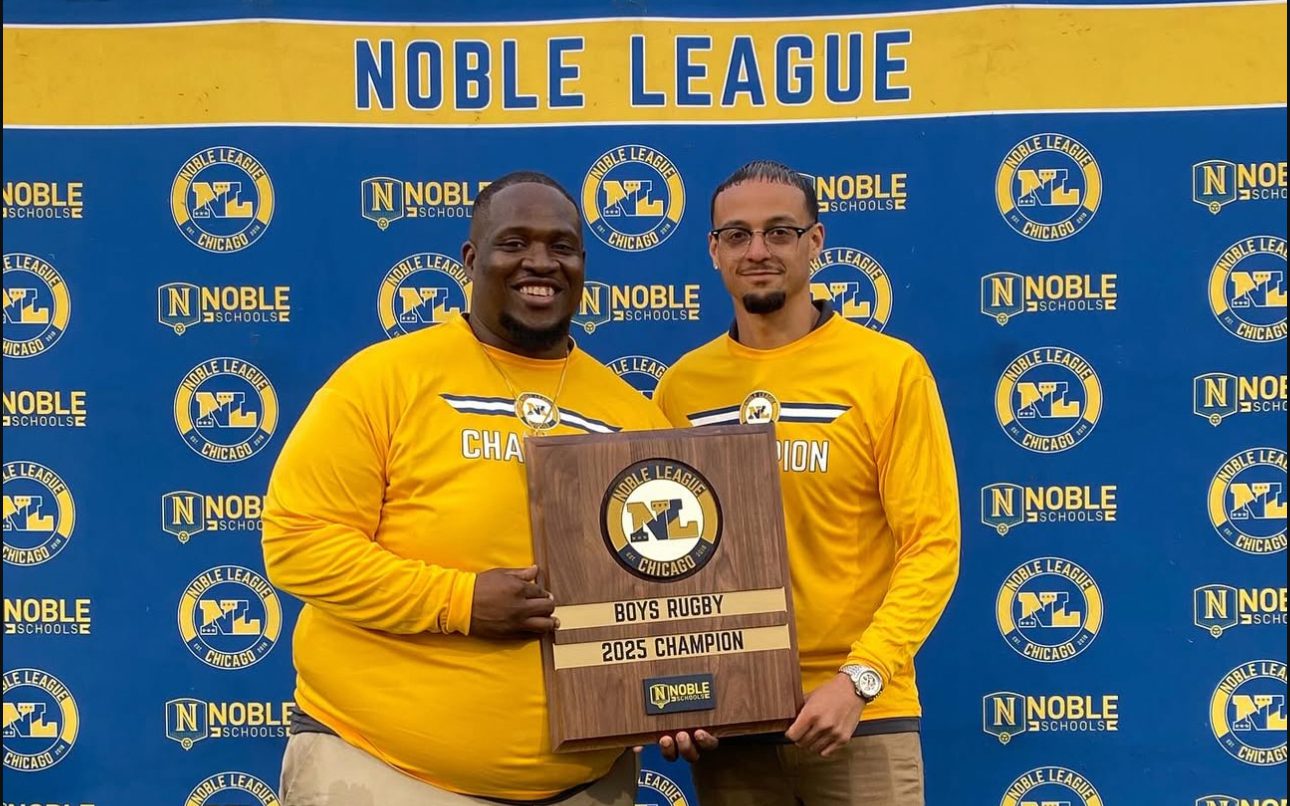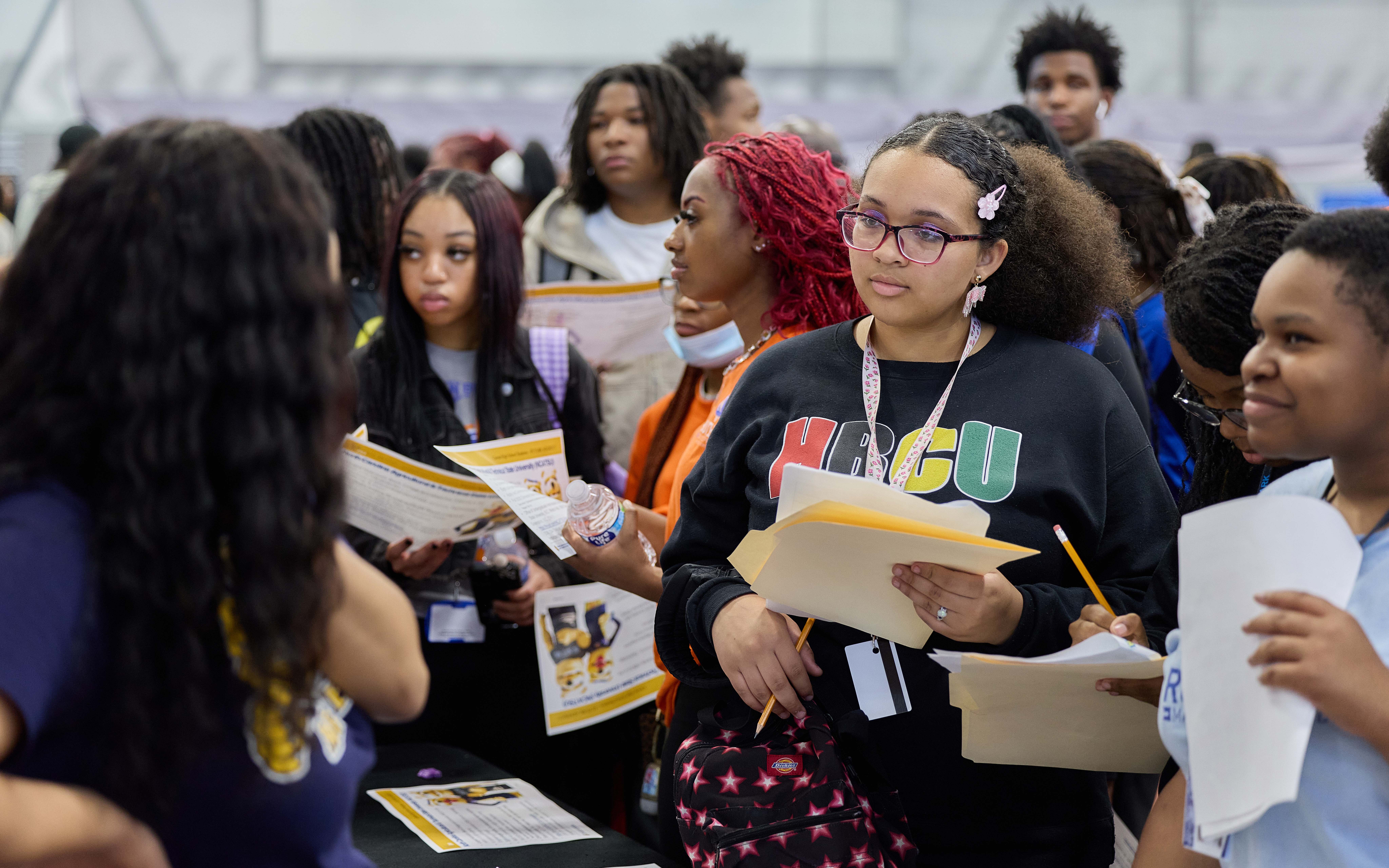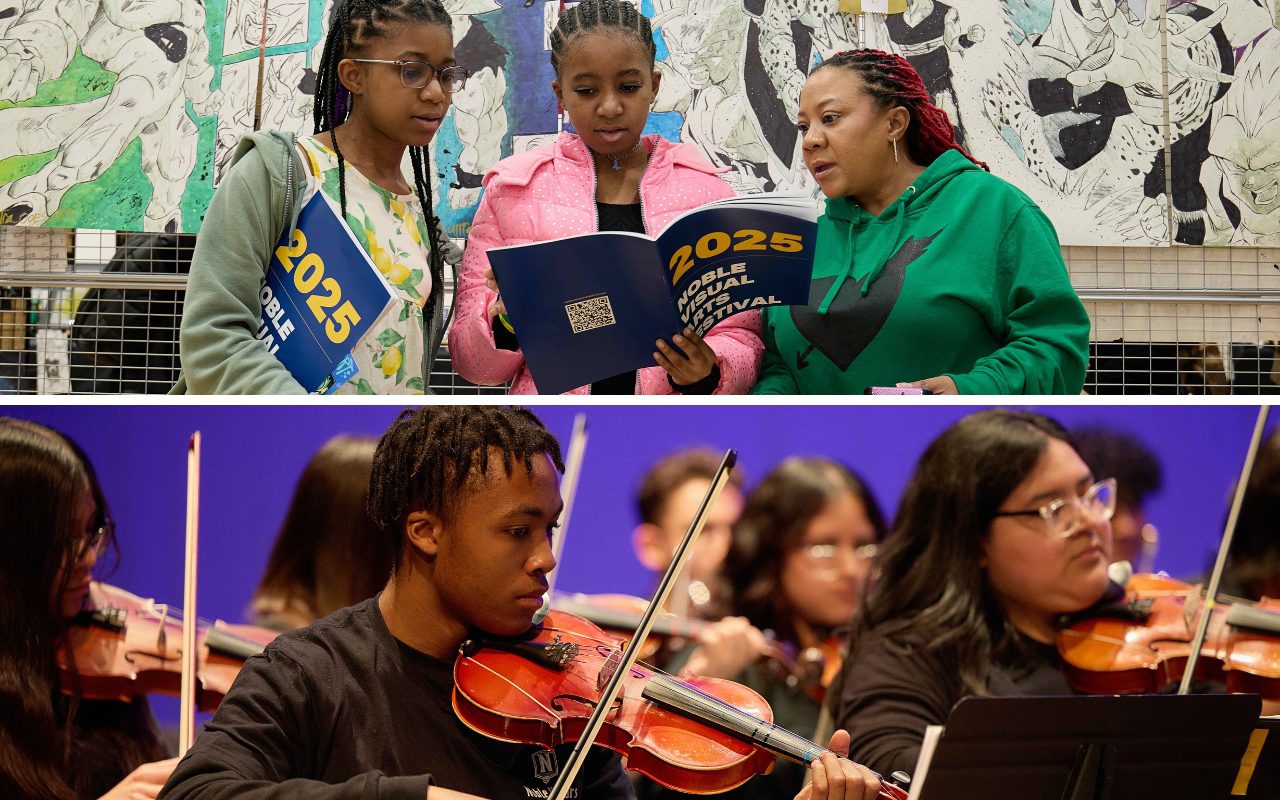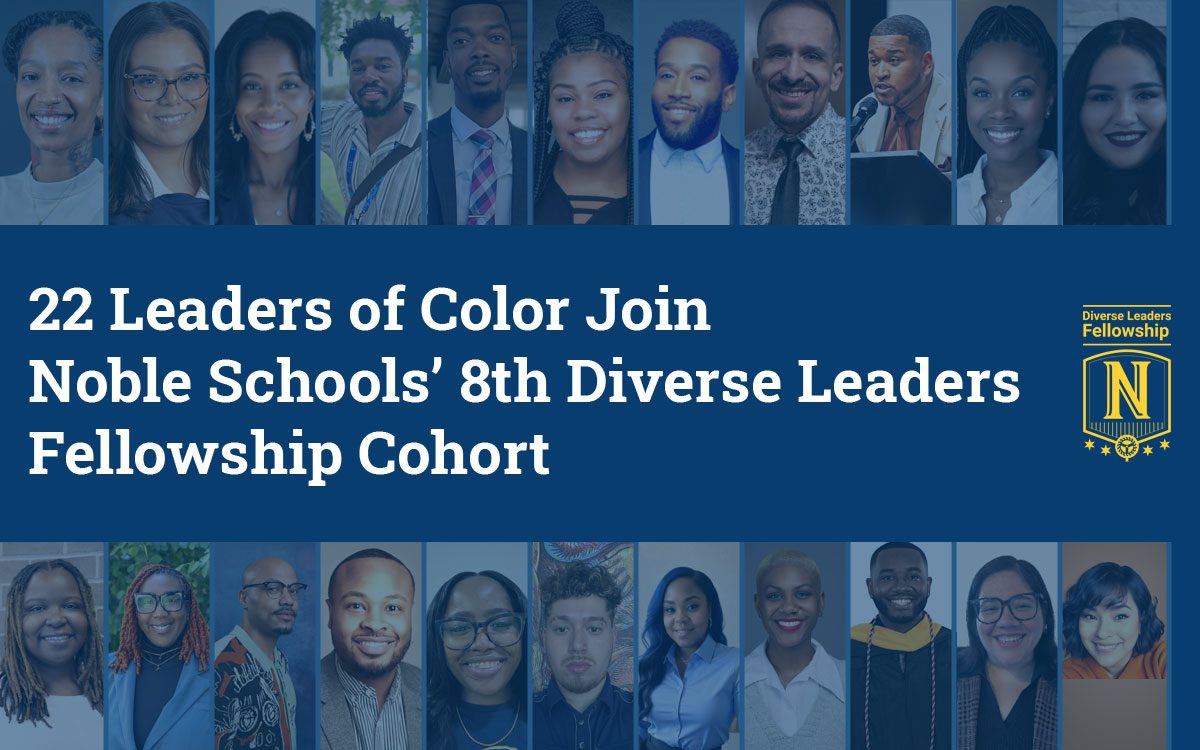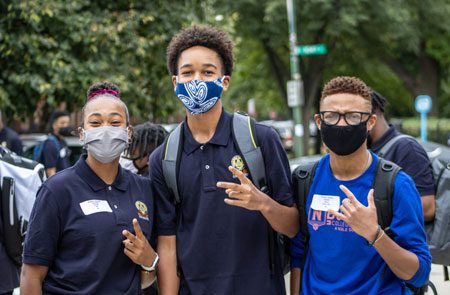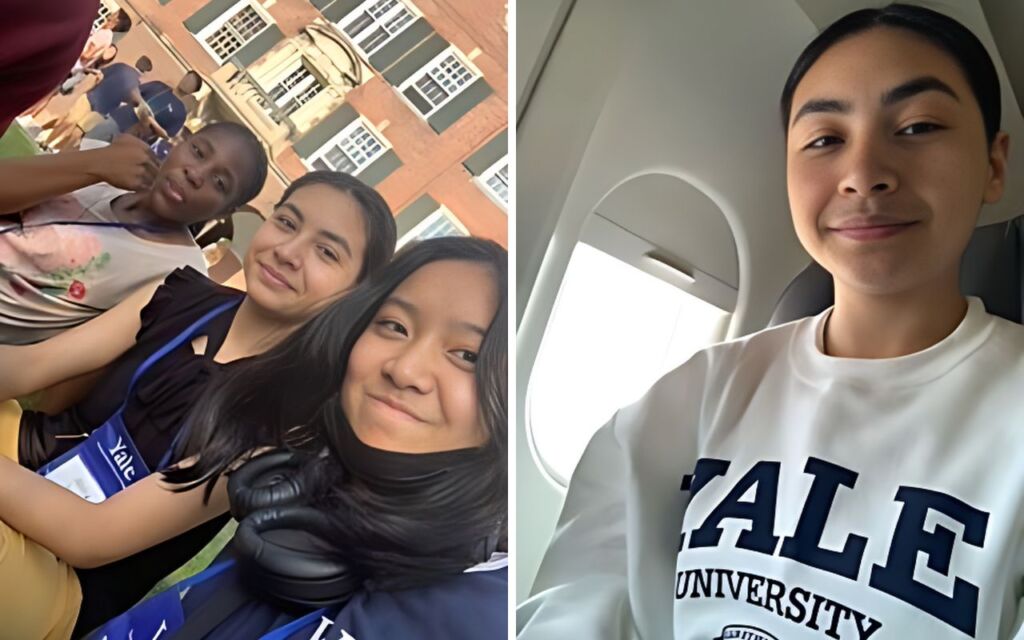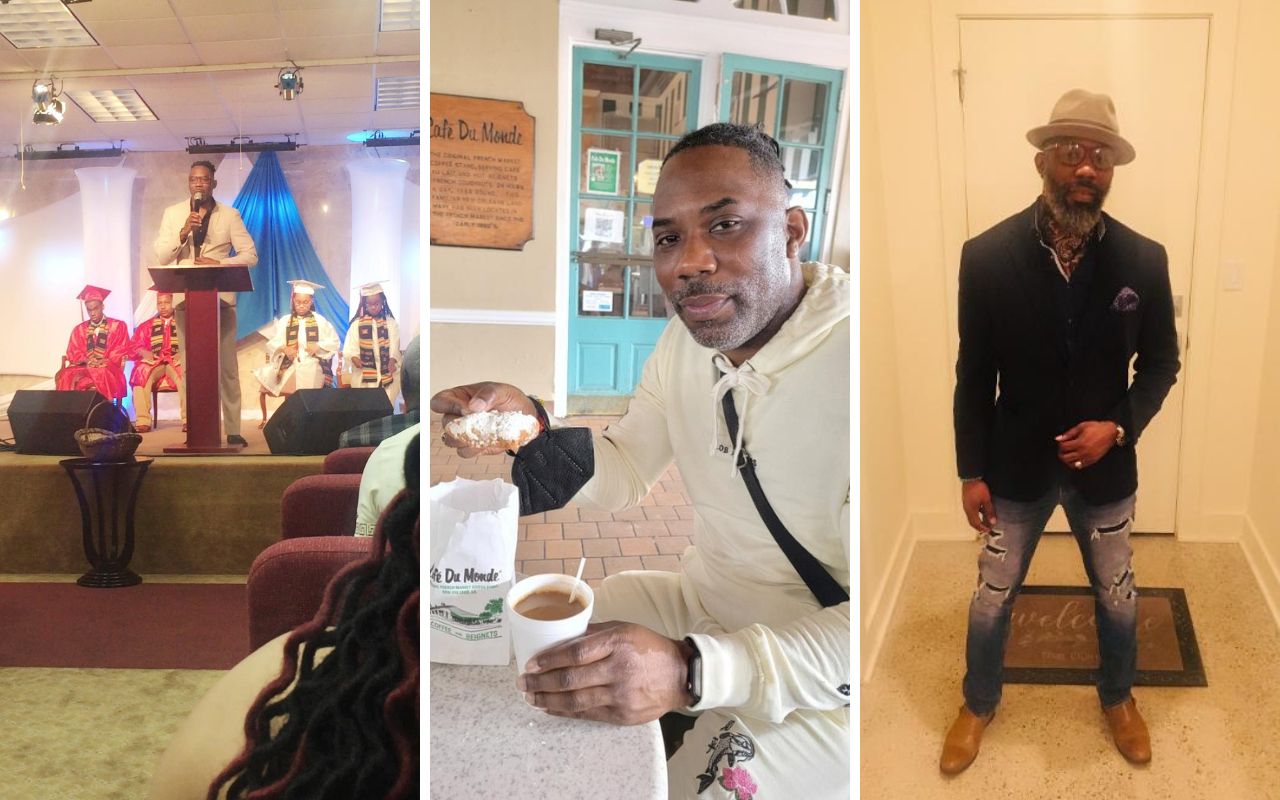
Carlos Duncan, a computer science teacher at Butler College Prep, comes into school every day with one big goal in mind: to be a pillar of knowledge and support for his students. In pursuit of this goal, he’s put in hours of work to launch a computer science curriculum at Butler, as well as lead a youth mentoring program to help students prepare for the professional world. Learn more about his work and teaching philosophy:
Starting Computer Science Classes at Butler College Prep
Duncan’s been at Butler for six years now, and in the last three, he noticed a rising interest among students to dive into technology studies. So, he pitched the idea of leading a computer science class. This is the second year his computer science class is running, and it opened up to all four grade levels this year. In the class, students learn a spread of basic computer access skills–like typing and data entry–as well as application (app) development and internet functionality.
One major focus of his class is to use technology to help the community.
“In the building, I’m in charge of their academic wellness, and I actually take that to heart… A part of my class is centered around building community,” Duncan said.
Duncan uses various tools, platforms, and technology, including Chromebooks and cell phones, to help students create tools to combat issues they see in their community and beyond. He helps students’ ideas come to life—from researching the issue to critically thinking about potential solutions to actually building the project.
“Mr. Duncan wants us to create an app that helps with problems in Illinois… I felt like drug use in poor communities was a problem and that people might just need someone to talk to,” Johniyah J., one of Duncan’s 9th-grade students, said.
Johniyah is currently creating an app to assist the Roseland community and surrounding communities—a text hotline for people who need mental and emotional support. To build it, she’s using code.org, a beginner-friendly coding site that Mr. Duncan has gone over extensively in class.
“I used to struggle with typing on my keyboard, but now I’m able to type in codes without looking,” Johniyah said.
Without Duncan’s work, most Butler students wouldn’t get computer science exposure before heading off to college—and early exposure to CS is exactly what Black and Brown students need right now. According to the Illinois Science & Technology Coalition, very few Black and Brown students are represented among STEM college graduates across the state, especially in computer science. In their 2018 study, they found that only 3.8% of the graduates were Hispanic or Latinx and only 2.5% were African-American or Black.
In Duncan’s class, Butler students are not only encouraged to seek out STEM programs and opportunities but are given the experience and resources needed so they can feel confident and stand out amongst other college applicants. For example, by the time students finish their first app project, they can not only show a final product but present their ideas, research, and development process. This shows college admissions teams that students not only have hands-on experience with coding but also project management and research skills.
“Students need early exposure to the creation of technology that they use every day. This may reveal new curiosity that leads a student to pursue a STEM program after leaving Butler, and hopefully, with confidence,” Duncan said.
Mentoring at “Getting Results Out Of Me”
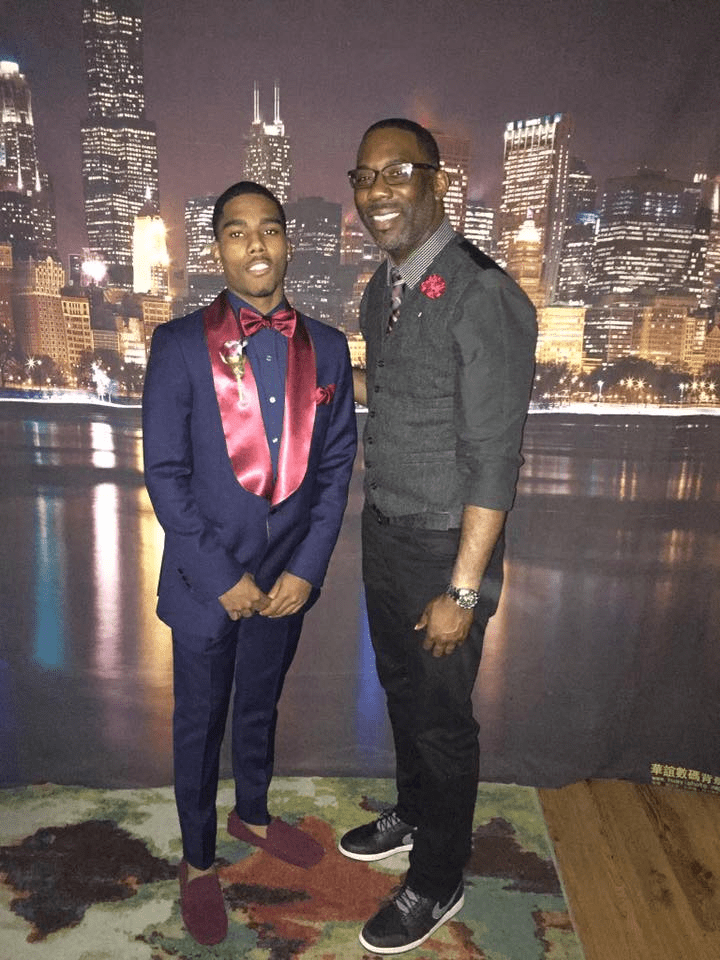
Duncan (right) stands with one of his Getting Results Out Me mentees.
In addition to teaching, Mr. Duncan is a mentor within the Get Results Out Of Me mentoring group — “a team of mentor stylists specializing in the development of youth mannerism, dress and appearance, socializing and networking skills, and leadership”. The group helps students define their individual styles and apply those to professional attire. Mentees also learn how to speak with poise and confidence, whether delivering a greeting or giving information in a presentation.
Duncan says the group focuses on three main pillars: accountability, responsibility, and dependability. He and the other mentors believe these values help their scholars “how to move into maturation, i.e. manhood,” Duncan said. If young people know what they are responsible for and how to be accountable for their actions, they will be seen as dependable individuals, Duncan said.
“My pillar characteristics remind students that their reason for being in their educational spaces alongside one another is to become professionals: individuals who work collaboratively and meet goals, using creativity and technological tools,” Duncan said.
He loves inspiring confidence in youth so that they can stand proudly before any opportunity or challenge. He hopes to continue supporting students in the Chicagoland community, both in teaching and mentoring.
